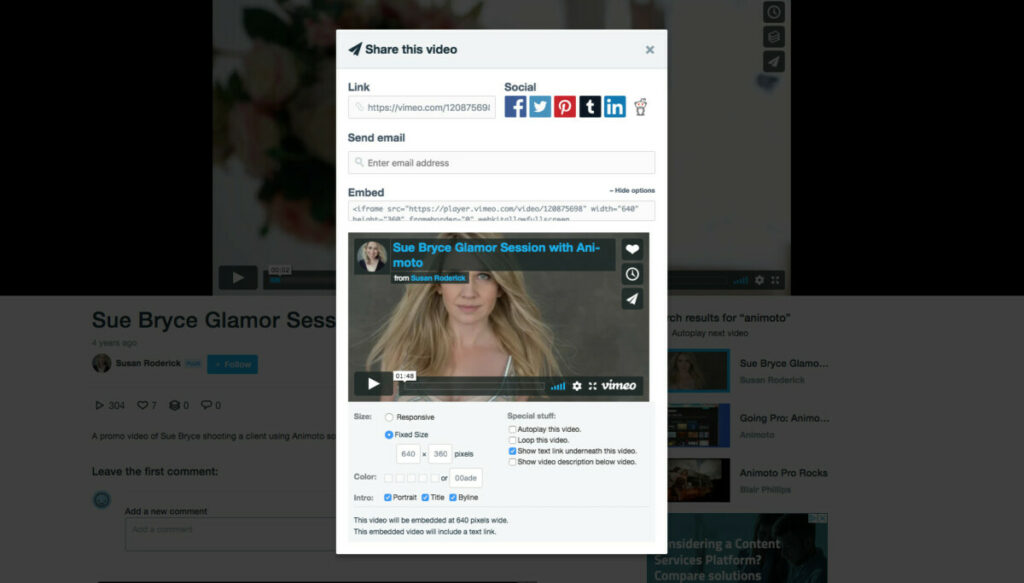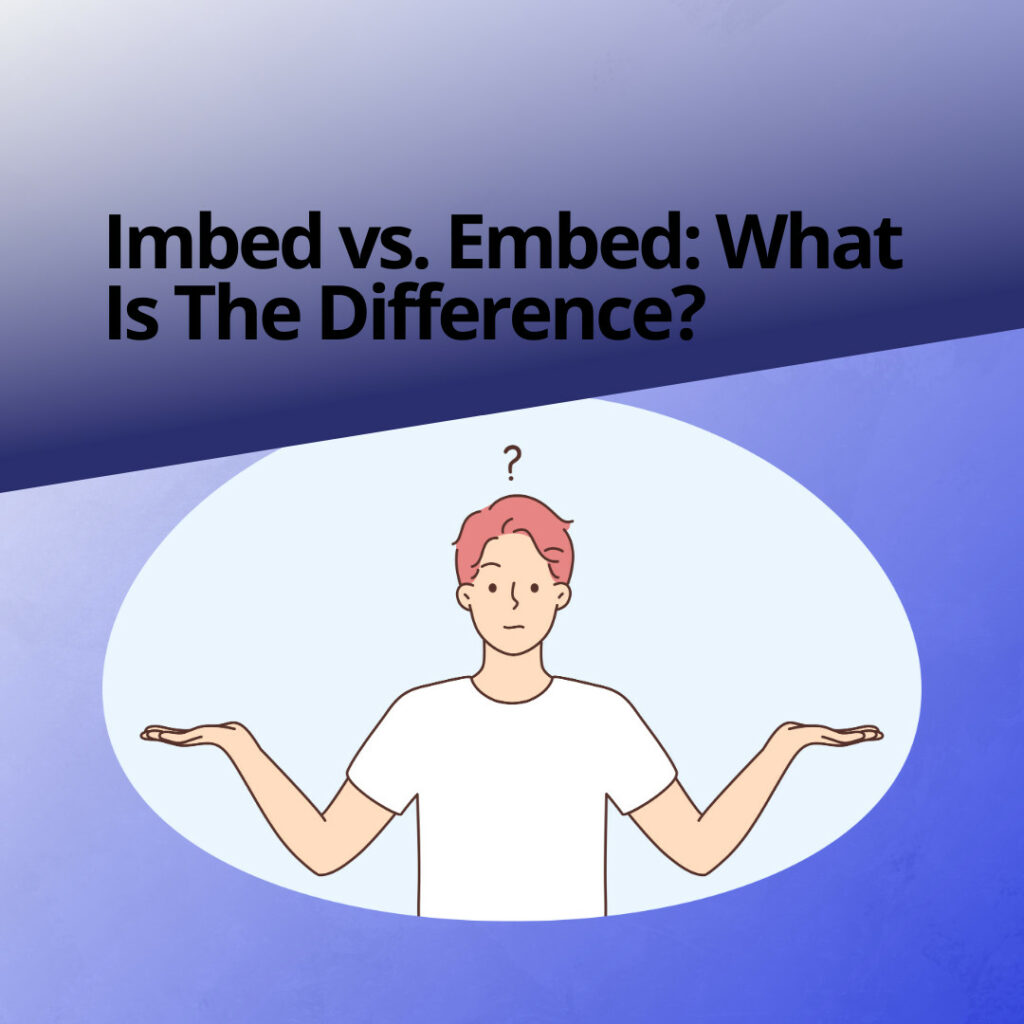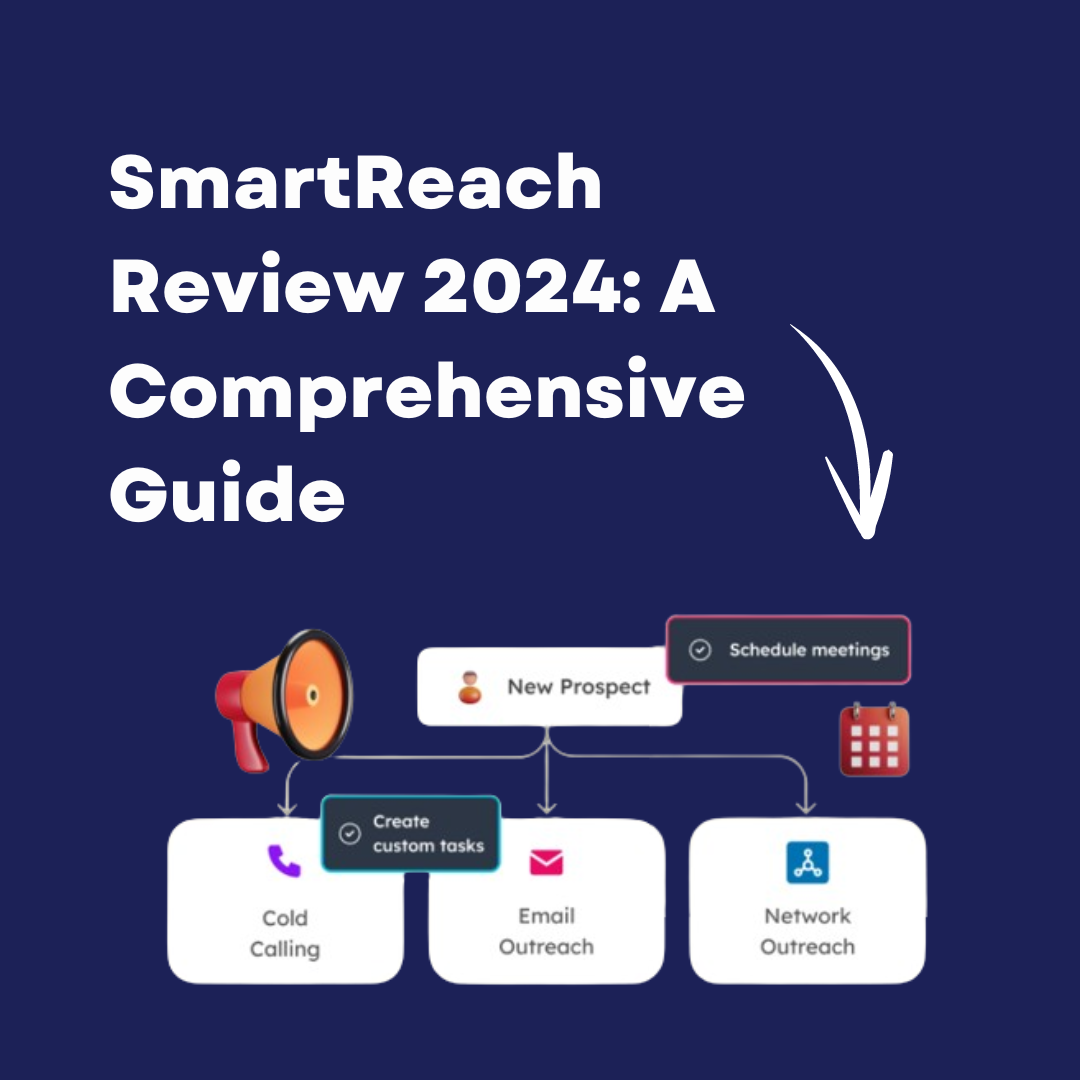Delving into the English language, one quickly realizes that it’s riddled with inconsistencies, variations, and conundrums. Among these are words that sound alike, look alike, or even both, leading to widespread confusion. Two such words are “imbed” and “embed.” At first glance, the difference might seem trivial, but in professional contexts, especially in technology and digital spaces, understanding their nuances is crucial. So, imbed vs. embed?
Let’s break down these two terms, trace their origins, and highlight their distinctions.
Imbed vs. Embed: Origins and Evolution
Imbed:
- Origin: The term “imbed” has roots that date back to the 16th century. It’s derived from the Old English word ‘inbeddian,’ which means ‘to enclose’.
- Evolution: Over the years, “imbed” was used in various literary works, including by well-known writers like Herman Melville in his novel ‘Moby-Dick’, where he described a shark’s teeth as being “imbedded in his jaw.”
Embed:
- Origin: “Embed” made its entry slightly later, in the early 18th century. The term borrows from the concept of “bed,” implying setting or fixing an object firmly and deeply in a surrounding mass.
- Evolution: It became more popular in the 20th century, especially in technological contexts. In the digital age, “embed” frequently refers to the act of placing a code, video, image, or another element within a digital platform. For instance, embedding a YouTube video on a website.
Contemporary Usage
Despite their intertwined histories, the two terms have branched out in modern usage:
- Imbed:
- Often found in older literary works or in specific regional English dialects.
- Common in medical contexts. For instance, “The splinter was imbedded in the skin.”
- Seen in geological references like “fossils imbedded in rock.”
- Embed:
- Predominantly used in technology and digital media.
- Examples include “embed a video,” “embed a tweet,” or “embed code into a website.”
- Adopted by modern software documentation and digital guidelines.

Why Does the Difference Matter?
The distinction between “imbed” and “embed” may seem minor, but in professional contexts, precision matters. Here are a few reasons why:
- Clarity in Communication: Using the correct term eliminates ambiguity, ensuring clear understanding, especially in fields like web development or digital media.
- Professionalism: In modern tech and digital industries, “embed” is the standardized term. Using “imbed” might be perceived as a lack of industry knowledge.
- Evolution of Language: As language evolves, so does its acceptance in various circles. Being updated with the latest usage can reflect one’s adaptability and awareness.
Tips to Remember the Difference:
- Etymological Connection: Recall the origin and evolution of the words. “Imbed” has a more general and older usage, while “embed” is a more recent term predominantly used in technology.
- Context Clues: Consider the context. If it’s a tech or digital context, “embed” is almost always the right choice.
- Professional Documents & Resources: Check professional resources, style guides, or dictionaries relevant to your industry.
Wrapping Up:
As with many linguistic quandaries, understanding the nuances between “imbed” and “embed” goes beyond mere semantics. It’s about clarity, precision, and professionalism, especially in the constantly evolving world of technology and digital media.
While “imbed” might hold a place in classic literature or specific niche contexts, “embed” is the frontrunner in today’s digital age. For professionals, writers, and digital enthusiasts, it’s essential to be cognizant of these nuances to maintain the highest standards of communication.
And if ever in doubt, remember: Language is fluid. It grows, adapts, and changes. However, being informed and updated ensures that we evolve along with it.









